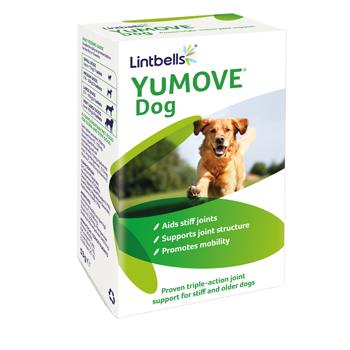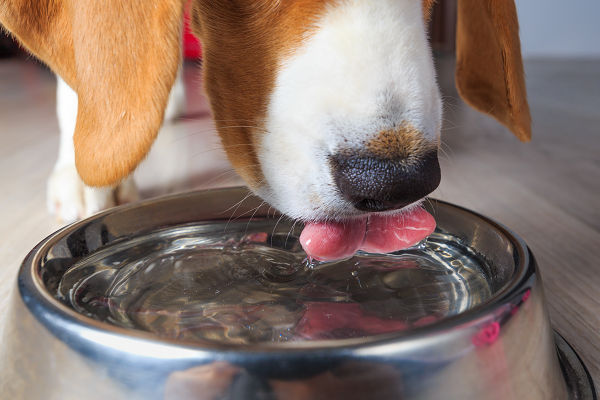Best News To Selecting Dog Skin Allergy Treatment
Wiki Article
How Can Glucosamine/Chondroitin Help With Joint Health In Dogs And Cats?
Glucosamine and Chondroitin two of the most popular supplements utilized by cats and dogs are able to improve and maintain joint health. Here are their uses and benefits.
Glucosamine
Cartilage Repair and Forming:
Its purpose is to repair cartilage by stimulating the production of glycosaminoglycans as well as proteoglycans. They are important components in cartilage. It helps in repairing cartilage by stimulating glycosaminoglycans.
Benefits It can slow the process of degrading cartilage inside joints. It also provides relief from pain, while also improving joint function.
Anti-inflammatory Effects:
Effect: Glucosamine could have anti-inflammatory properties that to reduce joint inflammation.
Benefits: Reduced pain and swelling can be experienced in the joints. Pets will be easier to move.
Chondroitin
Cartilage breakdown - Prevention
Function: Chondroitin is another component of cartilage. It prevents the enzymes responsible for breaking down cartilage from doing this.
Benefits Chondroitin protects against the degeneration of cartilage. This assists in maintaining the strength of joints and reduce joint disease.
Improved Joint Lubrication
Function: Chondroitin assists in attracting and retaining water. This is essential for maintaining elasticity.
Benefits: This increases joint lubrication, making movement more comfortable and less painful for pets.
Combined Benefits
Synergistic effects: Glucosamine, Chondroitin, and other supplements can enhance their positive effects when used together. This combination has been shown to be more efficient at increasing joint mobility and decreasing the pain associated with joints as compared to either supplement on its own.
The supplements can be beneficial for both cats and dogs. They can prevent and ease joint pain, including osteoarthritis. They are helpful to pets suffering from joint issues or for older animals.
Usage Considerations
Dosage, Administration: The dose can be adjusted according to the health of your pet, its weight or size. You should always adhere to the advice of your vet or the directions on the package.
The effects of the side effects are varied. While most pets won't experience any side effects Some may experience mild stomach upset. It is crucial to keep an eye out for any adverse reactions in your pet, particularly when you are first beginning the supplement.
You can also read our conclusion.
Glucosamine and Chondroitin are beneficial supplements to support joint health in dogs and cats. These supplements can enhance the quality of life of pets by reducing inflammation, enhancing joint lubrication, and also repairing cartilage. Check out the most popular published here on collagen for dogs for website info including pet astragalus supplements, pet marshmallow supplements, pet skullcap supplements, pet prostate supplements, pet supplements for pets with diabetes, pet meat protein supplements, pet allergy relief, pet supplements for pets with dry skin and more.

How Can Omega-3 Fatty Acids Aid With Kidney Failure In Cats And Dogs?
Omega-3 fatty acids, such as EPA (eicosapentaenoic acids) and DHA Docosahexaenoic acids are able to support the health of kidneys in dogs and cats. They may aid in reducing kidney problems.
Anti-inflammatory Properties
Reduce Inflammation
Function Omega-3 fatty acids possess significant anti-inflammatory effects. They reduce the production of proinflammatory cytokines and eicosanoids.
Benefits In reducing inflammation within the kidneys, omega-3s can help slow the progression of kidney damage and enhance kidney function.
Blood Pressure Regulation
Reduce Blood Pressure
Function: The omega-3 fatty acid helps control blood pressure by improving vascular functions and reducing inflammation in the system.
Benefits: Lowering blood pressure will reduce the strain on the kidneys. This will help prevent and slow the development of kidney disease.
Proteinuria Reduction
Reducing Proteinuria:
Function: Omega-3s help to decrease proteinuria (the loss of proteins to the urine) This is a problem that is common in kidney disease.
The reduction in proteinuria may help limit damage to kidneys that can occur in the future.
Glomerular Filtration (GFR) A measure of the speed of glomerular filtering is produced, is kept.
Supporting Kidney Filtration
Function The Omega-3 fatty acid assists ensure the integrity of the glomerular filtering system, that is the process by kidneys that filter blood.
Benefits The ability to maintain a high GFR may help to slow the progression and preserve kidney function.
Appetite Stimulation (nutritional Support)
Improve appetite
Omega-3s have the ability to increase appetite in animals suffering from kidney diseases, who often have a lower appetite.
Benefits: Nutritional improvements can support overall health as well as assist in maintaining the body's weight and muscle mass that is crucial for pets with kidney problems.
Cardiovascular Health
Helping Heart Health
Function: Omega-3 fatty acids support cardiovascular health by reducing inflammation, lowering blood pressure, and enhancing cholesterol profiles.
Benefits: A better cardiovascular system reduces the chance of complications such as heart disease or kidney failure. Additionally, it improves overall health.
Antioxidant Effects
Reducing Oxidative Stress:
Function The Omega-3 fatty acids have antioxidant properties that aid in reducing the kidneys' oxidative stress.
Benefits Reduced oxidative stresses helps to safeguard kidney cells and enhance kidney function.
Use and Considerations
Dosage and Administration proper dosage of omega-3 fatty acids depends on the size of the pet weight, size, and health needs. Please follow the advice of your veterinarian or instructions on the label. Fish oil supplements that are specifically designed for pets are a common source of omega-3s.
Omega-3 supplements are offered to pets in many forms. These include chews, liquid oils and capsules. Choose a quality product to ensure your pet's safety.
Omega-3 supplements can trigger gastrointestinal upset in some pets. To reduce the risk of side effects, start by taking a small amount, and then increase it slowly. It is crucial to monitor for reactions that could cause adverse effects, like nausea or diarrhea.
Conclusion
Omega-3 fatty acid supplements may aid in the management of kidney diseases in cats and dogs. Their anti-inflammatory, blood pressure-lowering, proteinuria-reducing, and appetite-stimulating properties help support kidney function and overall health. Omega-3 supplements can slow the progress of kidney disease and increase the quality of life of pets who have kidney failure. Take a look at the recommended petz park info for website recommendations including pet wellness supplements, pet supplements for pets with seizures, pet dental health, pet heart supplements, pet egg protein supplements, pet supplements for pets with fear of needles, pet reproductive supplements, pet supplements for pets with fear of new environments and more.

What Are The Ways That Cat And Dog Yeast Infections Helped With Probiotics?
Probiotics may be helpful in treating yeast infections in pets and humans. They work by helping to maintain an equilibrium between microorganisms within the intestines as well as the skin. Probiotics can help with yeast infection:
Restoring Microbial Balance
Balancing Gut Flora:
Function: Probiotics are beneficial bacteria which to maintain a healthy balance of microorganisms inside the gastrointestinal tract.
Benefits: An optimal gut microbiome improves overall immune system and helps to prevent yeast-related infections (such Candida). This in turn helps control yeast infections throughout your body.
Competition with pathogens
Competition with Harmful microorganisms
Function: Probiotics compete with pathogenic (disease-causing) microorganisms, including yeast, for food sources as well as space within the gastrointestinal tract and on the skin.
Probiotics can be beneficial since they surpass yeasts and other pathogens. This helps reduce the risk of infections and maintains a healthier microbiome.
Modulation Immune Reaction
Immune System Enhancement
Function: Probiotics help to control the immune system by increasing the production of substances that affect it.
Benefits: An enhanced immune system can aid the body in fighting off yeast infections and also reduce their frequency.
Production of antimicrobial substances
Antimicrobial Factors that Influence Production
Function The purpose of certain strains of bacterium (such as Bacteriocins) contain antimicrobial properties, and can be used to fight yeast and other pathogens.
Benefits These antimicrobials can help to directly inhibit yeast growth which aids in the treatment and management of yeast infections.
Reduce inflammation
Anti-inflammatory Effects:
Function: The anti-inflammatory properties of probiotics may help to reduce the inflammation that can be associated with yeast infection.
Benefits by reducing the inflammation due to yeast infections probiotics help to ease symptoms like itching and redness.
Help for Skin Health
Maintaining Skin Barrier Function:
Function: Probiotics help maintain the integrity of the skin barrier.
Benefits A healthy skin layer is less prone to yeast infections.
Utilization and other considerations
Types of Probiotics: Choose probiotic supplements that include strains that have been proven to help improve the skin and fight yeast infections, including Lactobacillus as well as Bifidobacterium species.
Administration: Probiotics are administered in capsules as well as chews, powders, and tablets. Probiotics applied to the skin can be beneficial in treating localized skin infections.
Duration: It may be required to take probiotics over a prolonged period of time to maintain microbial equilibrium and prevent recurrences of yeast-related infections.
Consultation with a Veterinarian: Consult your veterinarian prior to beginning probiotics with your pet. They can provide advice on the best probiotic strains to take and also the dosage and duration based on your pet’s health requirements.
The Conclusion
Probiotics can help manage yeast infections on cats and dogs. By promoting a healthy microbial balance, improving immune function, and reducing inflammation, probiotics can help improve overall skin health and decrease the frequency and severity of yeast-related infections. When used in conjunction with a complete treatment program, probiotics may help improve the comfort and well-being of pets who suffer from yeast infections. See the best dogs supplements advice for more advice including pet kidney supplements, pet supplements for pets with arthritis, pet supplements for pets with hip dysplasia, dog supplements, pet lavender supplements, pet heart supplements, pet reproductive supplements, pet supplements for pets with muscle weakness and more.
